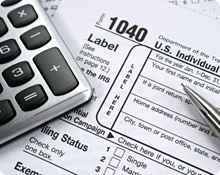
This, in and of itself, is not a huge problem. The government can be fairly understanding about people who owe taxes, and will often work with you to set up a payment arrangement that will whittle down that bill over time.
But what if you can’t pay the taxes?
For the IRS debts you can look at options such as an Offer-In-Compromise or perhaps even get placed into uncollectible status. The California Franchise Tax Board has similar programs in place to help you get back on your feet.
In a worst-case scenario, you may want to look at bankruptcy as a way to clear some of your taxes. Here’s how it works.
Wiping Out Taxes In Chapter 7 Bankruptcy
When it comes to income tax debts – federal as well as those owed to a state taxing authority such as the California Franchise Tax Board – you can clear your liabilities in a Chapter 7 bankruptcy so long as the taxes meet the following criteria:
- Your tax returns must have been due three years or more before the petition was filed;
- Your tax returns have to have been filed more than two years before the petition;
- The tax you owe must have been assessed against you by the government for at least 240 days before the case is filed;
- Your tax returns must have been truthful and not fraudulent; and,
- You must not have been intentionally attempting to evade or defeat the tax when you failed to pay.
For withholding taxes, estate taxes and the like the rules for clearing taxes in Chapter 7 bankruptcy are more complicated. Some can go, others not so much.
Using Bankruptcy To Repay Tax Debts
If you can’t wipe out a tax debt in a Chapter 7 bankruptcy, there’s always the option of filing a Chapter 13 reorganization bankruptcy. You’ll be able to pay the outstanding unsecured tax debts over a 3-5 year period of time without further interest or penalty, which will save you a lot of money over time. If a tax lien has already been filed before your bankruptcy case is filed, things get more complex so it’s best to act before the hammer falls on the lien.
In addition, if you’re repaying tax debts in a Chapter 13 bankruptcy then all collection activities must stop. That includes wage garnishment, bank account freezes, and the like.
How About Your Taxes?
Get copies of your tax transcripts for each year you owe the government. Sit down with a bankruptcy lawyer like me who understands the intersection of bankruptcy and taxes. You’ll get the answers you need so you can find out whether bankruptcy can help ease your tax burden.
You should consider checking out these other reference points to help you understand things a bit better:
- Bankruptcy and Tax Debts
- Chapter 13 Bankruptcy As Tax Professional’s Weapon
- Filing Bankruptcy If You Haven’t Filed Taxes
Remember, different types of bankruptcy may be better for different situations.